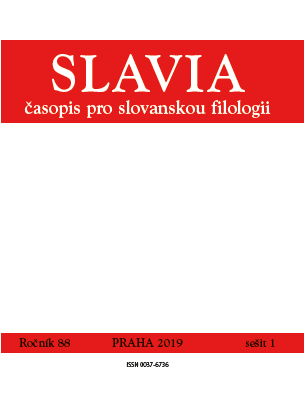„…a počínal tušit, že s obrazy to tady nebude jednoduché.“ Ekfrastyczność (w) powieści Cesta do pekel Václava Vokolka
„…a počínal tušit, že s obrazy to tady nebude jednoduché.“ Ekphrasis-ness in Václav Vokolek’s Cesta do pekel
Author(s): Aleksandra PająkSubject(s): Czech Literature, Translation Studies
Published by: AV ČR - Akademie věd České republiky - Slovanský ústav and Euroslavica
Keywords: intersemiotic translation; ekphrasis-ness; 19th century painting; devil; railway; Václav Vokolek; Czech literature
Summary/Abstract: The article analyses the novel Cesta do pekel written by Václav Vokolek – the Czech prose writer, poet and painter – through the usage of the intersemiotic translation strategies. The plot of the text can be characterized as the contamination of the physically plausible historic world (the construction of the railway in the middle of the 19th century) with the implausible one (the infernal story) according to Lubomír Doležel’s typology. Demonstrating the changes in the arts (the clash of romanticism with realism), the novelist sensitizes the reader to the drastic introversion into nature, as exemplifi ed by the urbanization processes in the north of the Czech Republic. At the same time, the artwork and the extended web of relations between the text and the various connoted paintings and graphics (the classical ekphrasis, hypothyposis, Bildgedicht) introduces the reader to the gallery of the 19th century painting (mainly German). Vokolek creates what can be called – chiefl y due to the debilitation of the generic quality of the contemporary ekphrasis – ekphrasis-ness as proposed by Seweryna Wysłouch and Adam Dziadek.
Journal: Slavia - časopis pro slovanskou filologii
- Issue Year: LXXXVIII/2019
- Issue No: 1
- Page Range: 30-43
- Page Count: 14
- Language: Czech
- Content File-PDF

